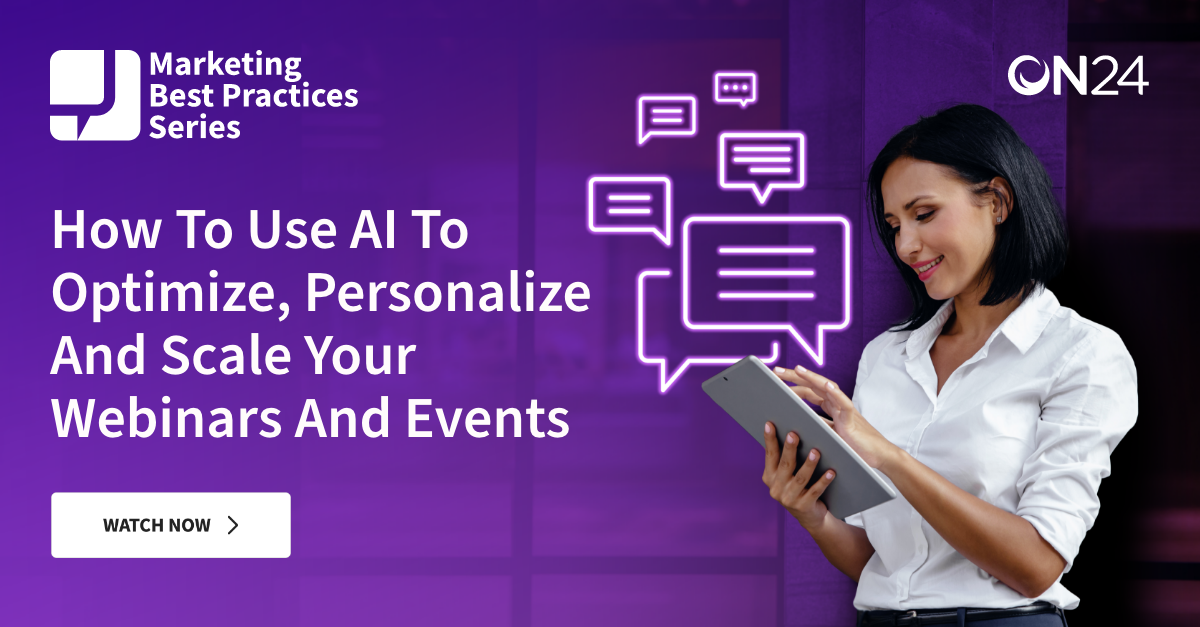The Future of AI Content Marketing: Understanding AI Content

Marketers and professionals are becoming more and more familiar with artificial intelligence. As a consequence, the technology is gradually revolutionizing how businesses approach content marketing. There are already countless tools available that can provide invaluable support throughout the content marketing process, and they’re getting better every day.
To avoid falling behind, content marketers must stay up to date with what’s possible from AI-powered content marketing tools and why what they offer is so important.
But how can you get started with AI-powered content marketing? Read on to learn how you can implement AI tools and get better results from your content marketing process.
What does AI in content marketing do?

AI-driven content marketing uses emerging technology, like large language models or generative AI, to improve, simplify or automate content marketing activities. Thanks to its versatility, AI can help at practically every stage of the typical content marketing process, including content planning, creation, distribution and analysis.
Operationally, AI can be implemented in a variety of ways. AI-powered content marketing tools, like ChatGPT, can tackle everyday content marketing tasks like content creation — from short-form copy like meta descriptions and social posts to long-form items like blogs and e-books — or even data analysis.
However it’s done, integrating AI in the content marketing process is usually intended to achieve one of three main goals: to improve content marketing efficiency, increase the impact of content performance, or get better insights from content marketing data.
Why AI in content marketing matters
AI tools can help marketers create better content quicker. That means they’re quickly becoming a mainstay in any content marketer’s tech stack.
Depending on where in the content marketing process AI is implemented, it can help marketers achieve specific benefits, including:
Efficiency and productivity
AI can streamline various stages of the standard content marketing workflow, capable of generating new content marketing ideas, creating content from scratch and editing existing content.
Wherever it’s used, AI reduces the amount of time and effort that marketers have to spend on a project. This means it can be instrumental in achieving better content marketing ROI – reducing the required input while maximizing the results.
Data-Driven insights
AI-powered data analytics programs can help marketers get better insights from the results of their content marketing efforts, enabling them to continuously optimize content performance.
AI models can analyze large datasets more quickly and effectively than humans and output critical findings in seconds. These insights can then be funneled back into the overall content marketing strategy to improve it over time, leading to progressively better results.
How to use AI in content creation
One of AI’s biggest strengths is its ability to be applied to a variety of scenarios. From outlines and meta descriptions to topic analysis and generating summaries, you can find a use for AI in pretty much every content marketing project.
These are some of the main ways to use AI in marketing, each one helping to make the entire process run more smoothly and generate better results:
Content ideation and planning
The first stage of the content marketing process — creating content ideas and planning the execution — is a great opportunity to integrate AI. It’s especially valuable during content brainstorming sessions, as it can generate lots of specific content ideas from a single seed topic.
It can also make planning the roll-out of content marketing projects simpler by generating content calendars, production schedules and more. This reduces the amount of time the content marketing team needs to spend on figuring out the project’s logistics, meaning they can focus on the creative side.
Content personalization
McKinsey found that 71% of consumers expect businesses to deliver personalized content experiences, and 76% get frustrated when they don’t. In other words, personalizing content marketing projects to suit distinct audience segments can enhance results.
AI tools can help make the rollout of content marketing personalization easier, largely automating audience segmentation and identifying ideal content journeys for each segment.
That means it can help businesses deliver personalized content recommendations and marketing messages to increase the chances of generating conversions.
Content repurposing
One of the big benefits of generative AI tools is their ability to turn one piece of content into streams of entirely new content formats. For instance, a webinar can be turned into a blog post, an e-book and a series of short videos, showcasing the power of content repurposing to deliver more reach and value to the program..
With AI, every piece of content can take on many forms and formats, giving marketers more flexibility than ever to match the right content type with the right channel for the right audience. Following content marketing tips on repurposing can also be instrumental here.
Content quality assurance
Many AI tools are built on large language models, which means they’re capable of understanding, generating and editing even complex text. Content marketers can use these tools to accelerate content production and edit copy.
While AI can generate content, many companies also use AI to handle quality assurance. After drafting copy, the text can be fed through an AI model that checks for errors, refines the language to suit the target audience and makes critical edits to maximize engagement.
Challenges and considerations
Generative AI is not meant to replace a company’s knowledge base, perspective, and core messaging. It’s there to be a tool to help you productively amplify that content. AI can be a great way to scale content production, but it requires a sound strategy, responsible execution, and oversight.
Overcoming AI content challenges
Although AI is a hugely beneficial tool with massive potential to solve existing issues in the content marketing process, it also raises its own challenges. Chief among these is the problem of ensuring quality in any AI-assisted content output.
The key to solving that problem is to integrate AI in a way that acknowledges its limitations. Instead of using it as an end-to-end solution responsible for tackling the content marketing process from start to finish without oversight, AI should be treated as an assistant and used selectively where it can deliver the most value.
Future trends in AI-driven content marketing

AI has already made a huge impact on practically every business sector, including marketing. But we’re still early in the technology’s development cycle, and it’s likely that there’s even more to come in terms of both AI’s functionality and sophistication.
These are some of the most exciting AI content marketing trends we expect to see unfold over the coming years.
AI-Powered content distribution
The distribution stage of the content marketing process is just as important as the content itself.
As content marketing-focused AI tools develop, we expect to see them get better at predicting how content will perform based on data from previous efforts. They’ll also improve their ability to recommend the best content distribution strategies to ensure success.
AI and interactive content
Interactive content is highly favored by consumers and gets, on average, 52% more engagement than static content, which means it’s well worth integrating into your content marketing process.
However, interactive content — like clickable infographics, quizzes or interactive webinars — is generally more complex than static content, meaning it’s costly and time-consuming to create.
AI could help reduce the effort required to generate interactive content, with widely available AI tools already capable of producing non-textual media like images and videos. In time, AI will improve at creating interactive, mixed-media content from scratch, helping content marketers increase engagement rates.
AI content marketing tools and technologies
To make the most of AI’s content marketing potential, it’s important to choose the right tools. While AI-powered chatbots, like ChatGPT or Bing AI, can be applied to content marketing tasks, many marketing platforms and channels that we use every day are already integrating AI tools into their solutions.
Here’s how you can find the ideal AI content marketing tool for your needs:
Choosing the right generative AI software
Like most technologies, AI performs best when it’s implemented strategically. So, before you choose an AI tool to integrate into your content marketing process, it’s important to decide where you need support.
For example, with AI-enhanced tools, a marketer could theoretically use AI to accelerate content production across a variety of channels. Webinars and digital experiences could easily become video clips, blogs, e-books and more — extending the reach and value of that marketer’s message.
That example serves to illustrate a broader point: the majority of content marketing AI tools are best suited to optimize and enhance specific elements of your marketing mix in both strategic and practical ways. Find the one designed to support the specific problem you’re facing to get the maximum value out of your investment.


